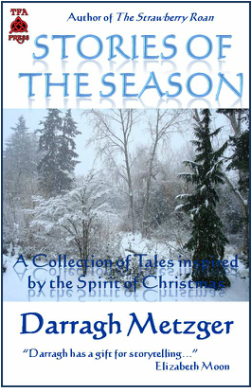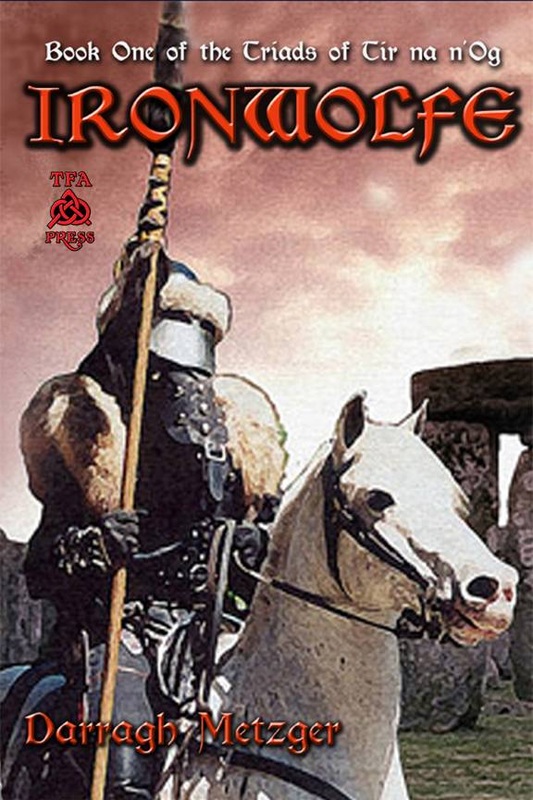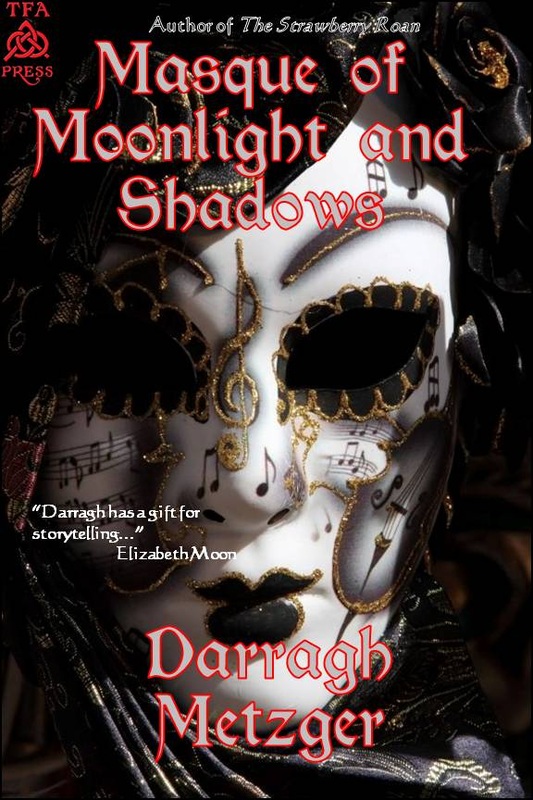It's now been more than 20 years since I first wrote The Strawberry Roan, and it remains probably my favorite of my works. At the time, it was one of those books neither my agent nor any editor who read it knew what to do with; it floated between various genres without fitting neatly into any of them. It garnered effusive praise, but, well...
While re-formatting it for its re-launch (at .99 as an e-book via Amazon, Smashwords, and Draft2Digital), I happened to re-read my Afterward. And realized it still held true, and still made for a pretty fun read. Ergo, I thought I'd re-launch my blog with it. Two birds, and all that...
Enjoy. *ahem*
I wrote this book under a number of influences, among them admiration for Mark Twain’s slyly hilarious tall tales, an early indoctrination with Robert Service’s poetry, the comic adventure wild west stories of Robert E. Howard, a general appreciation for the folk tales of the old west, and my own basically warped sense of humor.
But my life-long love affair with horses is certainly a driving factor, and contributed more to the overall story than I originally intended.
I am not, nor have ever pretended to be, a great horseman. I’ve spent most of my life around horses, have been fortunate enough to know some truly extraordinary ones, and most of them have taught me just how much I don’t know.
True, Black Bess is entirely fictional, a female version of the exaggerated heroes of western folk-tales. But she is a “real” horseman, one who knows a whole lot more than I do. She’s based on some of the “old timers” I’ve had the good fortune to meet and learn from over the years. You know, the type who never says much, but works quiet wonders while everyone around him or her is acting imperious, boasting of their prowess, and making piles of money off the credulous and uncertain. Any glaring deficiencies in some of the horsemanship in this book can be blamed on either; a) my state of ignorance, or; b) my attempts to “shorthand” the process, because I figured that most readers simply wouldn’t be interested.
However, if you’re reading this, you’re either; a) interested in anything else I might have to say outside the story itself; b) incredibly nosy; c) have nothing better to do with your time, or; d) you’re like me, and like savoring everything about a book, cover to cover. So, in a fit of total self-indulgence, I would like to try and express why a good deal of the credit for this book goes to a few very special horses.
I’ve owned, ridden, or worked with a lot of horses over the years. While almost all horse people eventually encounter a horse somewhere along the line who stands head and withers above his or her peers, and who leaves those who own, ride, or love them with a feeling of having been privileged to have known them, somehow—I don’t know how or why—I have been fortunate enough to have known several of “that kind of horse.”
In the acknowledgements, I mentioned Tony and Rusty, two of the first horses to ever grace my life, though they were gone long before I donned armor and started jousting for fun and profit. Without them, I’d never have recognized Jokata, Shannar, and Magic for what they were.
In the dedication, I spoke of the “Magnificent Seven,” the collective nickname given to those seven horses on whose backs the Seattle Knights got its start as a professional show troupe. The seven were: Jokata, Shannar, Caballo del Oro (fondly known as “Kyd”), Gwenivere, Ladyhawke, Lace, and, first and foremost—to me, at least—Magic.
These horses performed at nearly every show those first few years, working alongside the rest of the actors—sometimes in unbelievably tough conditions—to establish the group on the fair circuit, and helped the Seattle Knights to become one of the most highly rated shows of its kind in the country. Only Jo, ‘Nar, and Kyd had been around people in armor before, and jousting was new to all of them. Most were older, some were experienced in the more usual horseshow arena, some not, some were better showmen than others, some faster or more athletic. But all of them quickly learned what was needed and threw themselves into the effort, giving one hundred percent of themselves at every show.
Many other horses have performed with the troupe off and on, but these seven amazing individuals were there consistently, performed brilliantly, and even developed their own fan followings. They won the admiration of everyone who knew and worked with them, and overturned a lot of smug theories—mine and others’—of horsemanship, equine intelligence, the laws of physics, and karma. They regularly worked miracles upon demand, each in their own unique way, and matter-of-factly did the impossible, some finishing with a rousing demand for applause, others wondering what all the fuss was about, content with their carrot or graham cracker.
All of these remarkable animals taught me a lot—sometimes quite painfully—but I wouldn’t trade the bumps and bruises to body or ego for anything. Whenever I begin to doubt the existence of God, I have only to think of them, and realize that not one of these marvelous, larger-than-life characters could ever have been created by accident.
Each and every one of them deserves to have a book written about them. The trouble is, each book would have to contain the words, “the kind of horse you find only once in a lifetime,” and no one would ever believe a word.
If you want to read more about the “Magnificent Seven,” go to www.seattleknights.com. They are now on the Tributes page. But they deserve to be remembered.
While re-formatting it for its re-launch (at .99 as an e-book via Amazon, Smashwords, and Draft2Digital), I happened to re-read my Afterward. And realized it still held true, and still made for a pretty fun read. Ergo, I thought I'd re-launch my blog with it. Two birds, and all that...
Enjoy. *ahem*
I wrote this book under a number of influences, among them admiration for Mark Twain’s slyly hilarious tall tales, an early indoctrination with Robert Service’s poetry, the comic adventure wild west stories of Robert E. Howard, a general appreciation for the folk tales of the old west, and my own basically warped sense of humor.
But my life-long love affair with horses is certainly a driving factor, and contributed more to the overall story than I originally intended.
I am not, nor have ever pretended to be, a great horseman. I’ve spent most of my life around horses, have been fortunate enough to know some truly extraordinary ones, and most of them have taught me just how much I don’t know.
True, Black Bess is entirely fictional, a female version of the exaggerated heroes of western folk-tales. But she is a “real” horseman, one who knows a whole lot more than I do. She’s based on some of the “old timers” I’ve had the good fortune to meet and learn from over the years. You know, the type who never says much, but works quiet wonders while everyone around him or her is acting imperious, boasting of their prowess, and making piles of money off the credulous and uncertain. Any glaring deficiencies in some of the horsemanship in this book can be blamed on either; a) my state of ignorance, or; b) my attempts to “shorthand” the process, because I figured that most readers simply wouldn’t be interested.
However, if you’re reading this, you’re either; a) interested in anything else I might have to say outside the story itself; b) incredibly nosy; c) have nothing better to do with your time, or; d) you’re like me, and like savoring everything about a book, cover to cover. So, in a fit of total self-indulgence, I would like to try and express why a good deal of the credit for this book goes to a few very special horses.
I’ve owned, ridden, or worked with a lot of horses over the years. While almost all horse people eventually encounter a horse somewhere along the line who stands head and withers above his or her peers, and who leaves those who own, ride, or love them with a feeling of having been privileged to have known them, somehow—I don’t know how or why—I have been fortunate enough to have known several of “that kind of horse.”
In the acknowledgements, I mentioned Tony and Rusty, two of the first horses to ever grace my life, though they were gone long before I donned armor and started jousting for fun and profit. Without them, I’d never have recognized Jokata, Shannar, and Magic for what they were.
In the dedication, I spoke of the “Magnificent Seven,” the collective nickname given to those seven horses on whose backs the Seattle Knights got its start as a professional show troupe. The seven were: Jokata, Shannar, Caballo del Oro (fondly known as “Kyd”), Gwenivere, Ladyhawke, Lace, and, first and foremost—to me, at least—Magic.
These horses performed at nearly every show those first few years, working alongside the rest of the actors—sometimes in unbelievably tough conditions—to establish the group on the fair circuit, and helped the Seattle Knights to become one of the most highly rated shows of its kind in the country. Only Jo, ‘Nar, and Kyd had been around people in armor before, and jousting was new to all of them. Most were older, some were experienced in the more usual horseshow arena, some not, some were better showmen than others, some faster or more athletic. But all of them quickly learned what was needed and threw themselves into the effort, giving one hundred percent of themselves at every show.
Many other horses have performed with the troupe off and on, but these seven amazing individuals were there consistently, performed brilliantly, and even developed their own fan followings. They won the admiration of everyone who knew and worked with them, and overturned a lot of smug theories—mine and others’—of horsemanship, equine intelligence, the laws of physics, and karma. They regularly worked miracles upon demand, each in their own unique way, and matter-of-factly did the impossible, some finishing with a rousing demand for applause, others wondering what all the fuss was about, content with their carrot or graham cracker.
All of these remarkable animals taught me a lot—sometimes quite painfully—but I wouldn’t trade the bumps and bruises to body or ego for anything. Whenever I begin to doubt the existence of God, I have only to think of them, and realize that not one of these marvelous, larger-than-life characters could ever have been created by accident.
Each and every one of them deserves to have a book written about them. The trouble is, each book would have to contain the words, “the kind of horse you find only once in a lifetime,” and no one would ever believe a word.
If you want to read more about the “Magnificent Seven,” go to www.seattleknights.com. They are now on the Tributes page. But they deserve to be remembered.
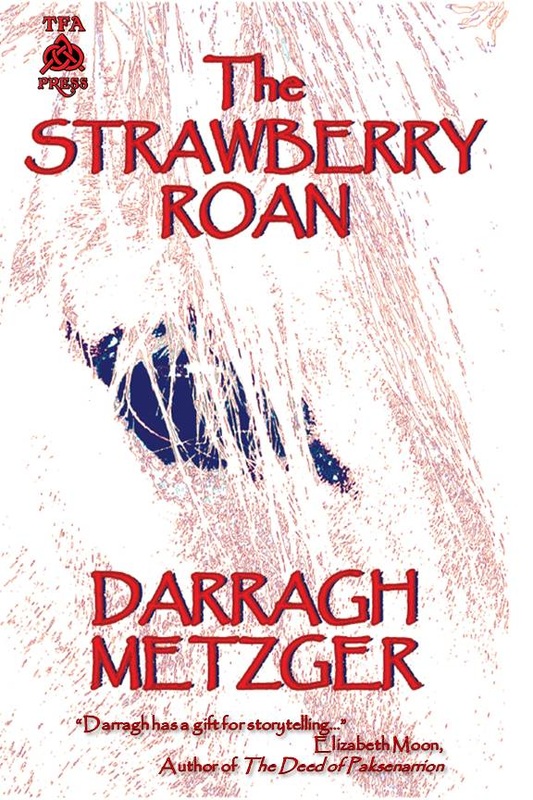
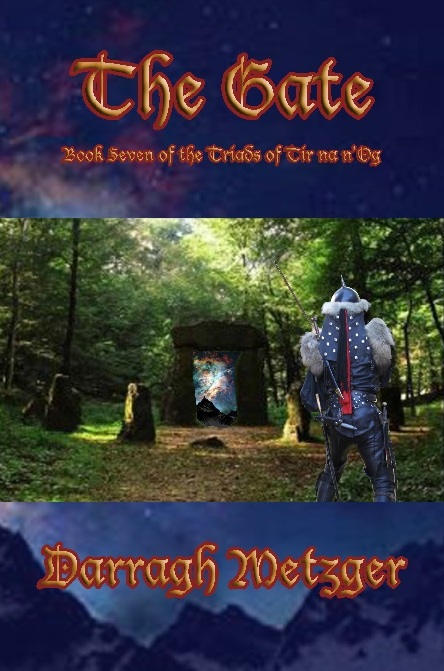
 RSS Feed
RSS Feed
